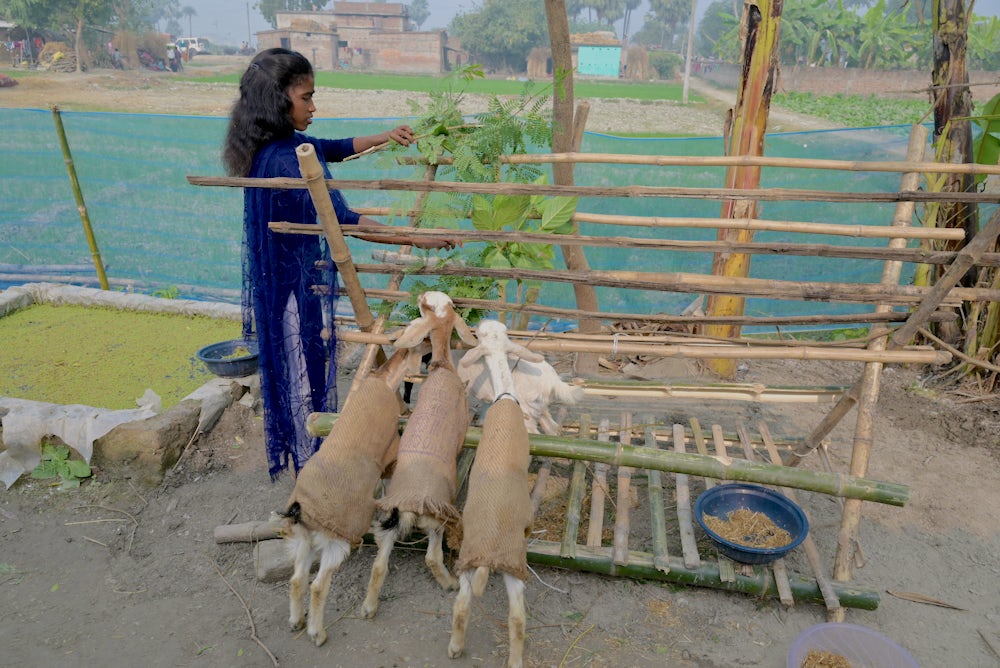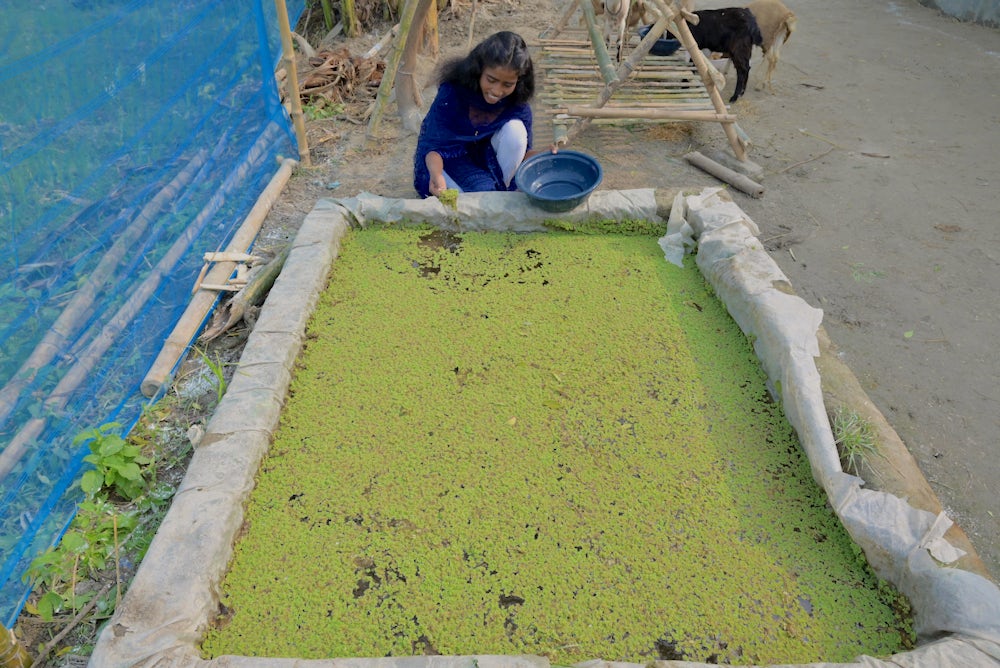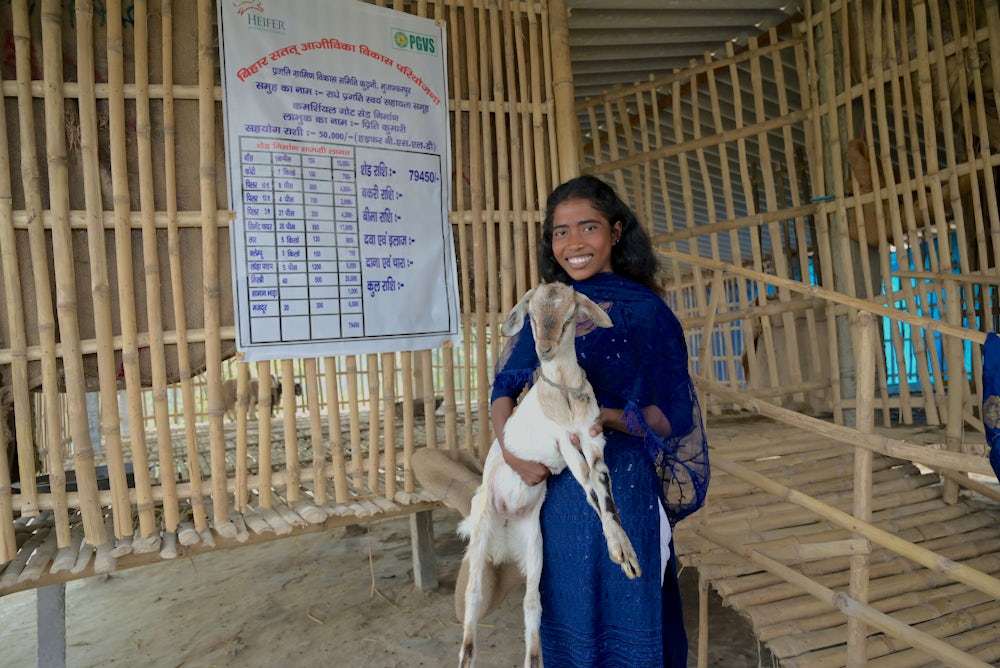After completing her secondary education, Preeti Kumari, 20, felt constrained by the lack of employment opportunities in Bihar, India. Despite pursuing higher education in the state with the lowest literacy rates in the country — 61.8% — Preeti’s prospects for employment, like millions of young women in rural Bihar, were bleak due to the state’s booming population, slow economic growth and restrictive social norms.
“I was either studying or taking care of domestic chores. There was nothing else to do or expect from the future,” shared Preeti, referring to the lack of opportunities to earn a dignified livelihood.
This was only until Preeti decided to start her own enterprise.

The animal husbandry sector contributes to about one-fifth of the total income in rural Bihar and creates large-scale employment for women, especially those who are landless or have small and marginal plots of land. But, despite dominating animal husbandry work in rural Bihar and bearing an equal burden for cultivation as men, women’s participation in agriculture and related activities is often considered unpaid work, which excludes them from earning a sustainable income and becoming self-reliant.
Heifer’s Bihar Sustainable Livelihood Development Project aims to support 70,000 women smallholder farmers across five districts in Bihar to earn a sustainable living income through the goat and vegetable value chains. The project provides training to women self-help groups to carry out savings and loaning functions; learn animal management techniques, such as constructing safe animal shelters, providing green fodder and vaccinating livestock against preventable diseases; and connect with market actors, such as inputs and service providers, transporters, aggregators and traders.
Preeti is one of nearly 163 animal health service providers, also known as community agroveterinary entrepreneurs (CAVEs), trained by the project to provide support services such as first-aid treatment, deworming and vaccination to help farmers rear healthy animals on their farms.
The seven-day training acquainted Preeti and other CAVEs with animal well-being standards, effective breeding and production techniques, common diseases among livestock and their line of treatment.

In her initial days as a CAVE, Preeti had a hard time convincing the community members to listen to her advice or consult her when they needed medical health for their animals.
“Producers do not know how and when to get their animals vaccinated,” shared Preeti, referring to the inadequate animal rearing practices in the community. “They often let them loose for grazing and scavenging which causes parasite infection — and their [animals’] health depletes.”
Preeti started moving around the village meeting people, providing preventive veterinary health care services and building awareness around animal health and production.
“People often looked at me with apprehension thinking how a young girl would train them and help them grow their business,” Preeti shared, reflecting on the obstacles she faced while working as a woman in a deeply patriarchal society. “They often questioned my capability.”
But, she kept working undeterred to build her skills and help other women farmers strengthen their goat farms and scale their businesses.
Gradually, people started to recognize her work and seek her consultation.
“I started with earning 500-700 rupees (about $6-8) in a month,” Preeti shared. With Heifer's assistance, she invested in buying a scooter to cover more villages and reach more producer households, yielding better financial returns. “Today, I am taking care of almost 5,000 goats in three Gram Panchayats [divisions] and earning nearly 12,000 rupees ($145) a month.”
To further support farmers in improving the quality of their livestock, Preeti reinvested her income to construct a goat shelter that can accommodate 60 to 70 goats. “The goats are purchased, kept here for seven to eight days, vaccinated, dewormed and then sold to the rearers for breeding purposes” she shared. “The offspring of these goats are then sold in the market.”

From her goat enterprise, Preeti earns approximately 20,000-25,000 additional rupees in a month, further supplementing her income as a CAVE. Determined to scale her business enterprise further, Preeti now plans to open a store to sell good quality seeds, animal feed and agricultural products.
In a community where most women lead lives devoid of identity and recognition, Preeti has established herself as an advisor, a dynamic entrepreneur and an advocate for engaging youth in farming.
“Even when it [the Heifer project] ends, I will continue to do what I am doing,” she shared, confident in her ability. “I have learned skills that cannot be taken away from me, and I will keep using them to grow.”